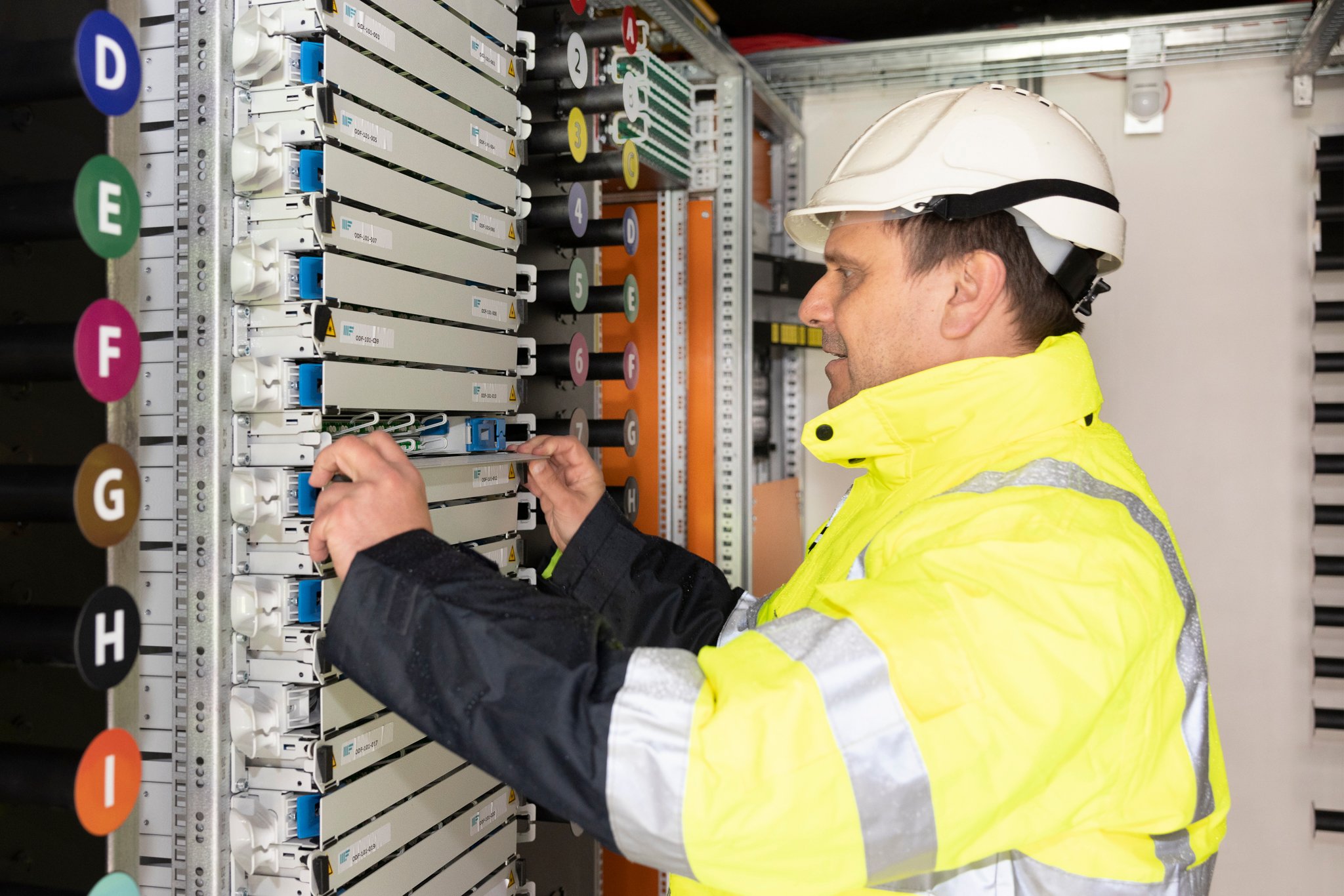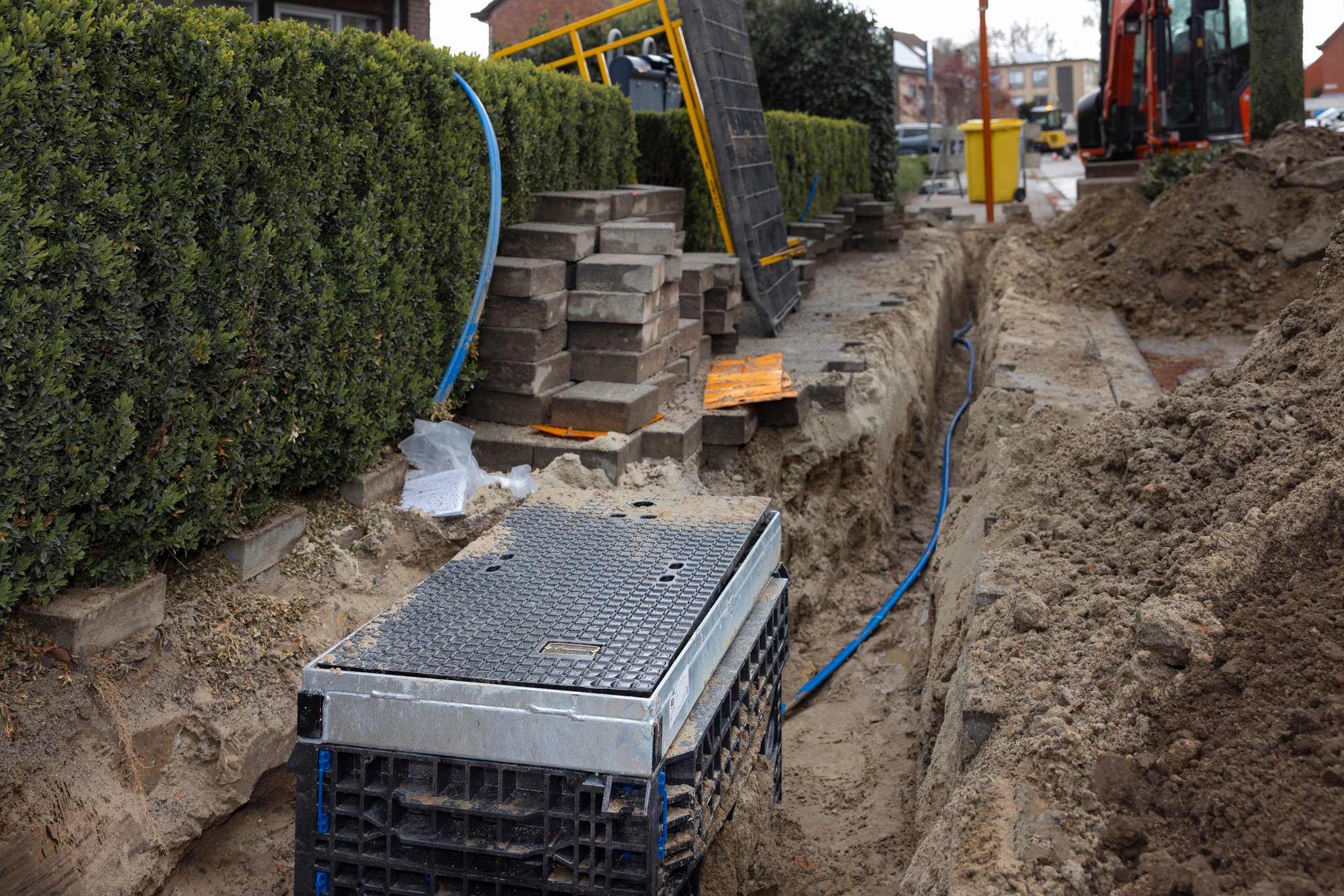Fixed Networks
Construction of fibre optic networks in the Netherlands pays of in Belgium too
-
Fibre optic network construction in Belgium is on the rise. We are one of the fastest European growers in Fibre To The Home (FttH). It is also a slightly more complex market than the Dutch one, though. Here's how Circet Benelux is using its expertise to support Belgian growth.
Catch-up needed
“We want to pilot Belgium into the European top three fibre networks.”
- Russell Crye, CCO Circet Benelux
First the good news: Belgium is the fastest growing country in Europe for fibre networks. The other side of that coin, of course, is that the country is also lagging well behind the European average. According to figures from the FTTH Council, only 20,7% of households in Belgium had a fibre connection in 2021. By way of comparison, Latvia achieves 91,5% and the European average is 62,3%.
"We want to get Belgium into the top three," says Russell Crye, Chief Commercial Officer at Circet Benelux. "And thanks to the combination of local knowledge of our Belgian operation, experience in the Netherlands and other European countries where Circet operates, we are perfectly placed to support that growth. After all, Belgium is a slightly more complex country than the Netherlands for fibre optics, for Instance, so our expertise comes in handy."
Synergy works
So why exactly is Belgium more complex than the Netherlands? "The licensing process is different in Belgium", explains Russell. "The preparation therefore takes longer than in the Netherlands: twelve weeks on average versus eight. At Circet, we take care of the construction permit and signage permit ourselves, to relieve municipalities of administrative burden.
"You also have 'synergy works' in Belgium. That means that other utility companies get the opportunity to co-lay their infrastructure at the same time during our works. This works in both directions, of course. We have a dedicated 'synergy cell' in Belgium which monitors the works of all utility companies across the country and discusses them with cities and municipalities."

More intensive excavations
A second difference is the composition of the subsoil. "In the Netherlands, there is usually a sand bed under the tile that you can dig straight into. In Belgium, you very often find another stabilising concrete layer underneath. That is more difficult to dig into and restore, which impacts the construction pace."
That combination of longer procedures and the different construction pace makes itself felt. "In the Netherlands, we can dig about 4 to 6 kilometres a week in a project and in Belgium it is sometimes only 500 to 600 metres," says Russell. "That means efficiency throughout the chain becomes all the more important: from permit applications to completion."
Poles, underground or on the facade?
"In the Netherlands, home fibre connection is almost always underground. In Belgium, this is not always obvious", Russell explains. "In Wallonia, houses are usually quite far apart, so power cables are realised via poles. That is more efficient than, say, digging a kilometre to serve two houses. That means we also lay fibre optic cables via those poles.
In Flanders you have densely populated areas where it is difficult to dig. There we lay fibre via the facade. In new markets it is customary to do the connection underground. In short: in Belgium the operators in each city choose the best connection method, and each type of connection requires a different technique. Thanks to our decades of experience with fibre optics, we have the expertise to manage every possible situation and properly advise cities and municipalities."

Success factors for building fibre networks
"It is clear that Belgium needs to catch up in terms of fibre," Russell concludes. "And because of the local complexities, there is a need for expertise and experience throughout the process. For example, we are the leader in Benelux in terms of IT and tooling to support such installations."
"In addition, we are active at several project sites in Belgium. For stakeholder and environment management, it is important to have a local presence. Finally, corporate social responsibility is also one of our core values. We provide local control, a safe working environment, good signage and communication to local residents ... In short, Circet Benelux is perfectly placed to support that transition. We want to get Belgium into the top 3 of European fibre countries."
-

